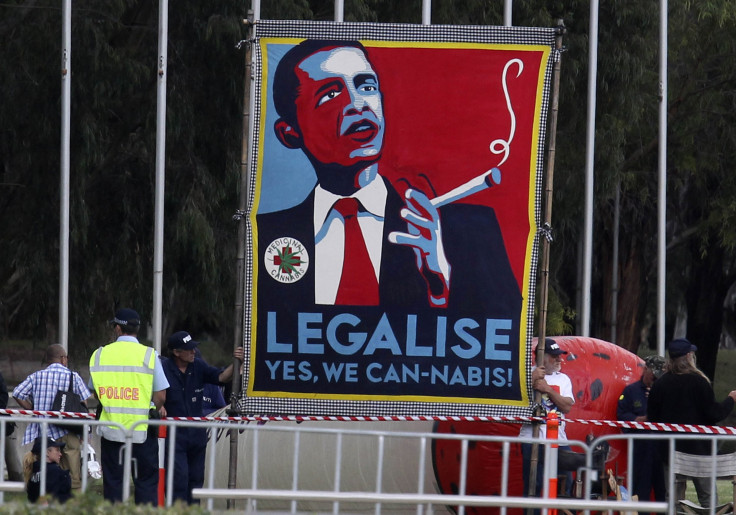
In an interview published in this week’s New Yorker, President Barack Obama came out in support of laws passed recently in Colorado and Washington which legalize marijuana, telling the magazine’s editor David Remnick that “it’s important for it to go forward because it’s important for society not to have a situation in which a large portion of people have at one time or another broken the law and only a select few get punished.” He added that while he didn’t encourage the use of it, and had told his daughter that he considered it a “bad idea, a waste of time, [and] not very healthy,” he thought pot was less dangerous than alcohol “in terms of its impact on the individual consumer”.
“As has been well documented, I smoked pot as a kid,” Obama said, “and I view it as a bad habit and a vice, not very different from the cigarettes that I smoked as a young person up through a big chunk of my adult life. I don’t think it is more dangerous than alcohol.” The president went on to point to race and class disparities in arrests and prosecutions related to marijuana -- African-Americans are 3.7 times more likely to be arrested for use than whites, despite similar rates of consumption -- saying, “Middle-class kids don’t get locked up for smoking pot, and poor kids do … And African-American kids and Latino kids are more likely to be poor and less likely to have the resources and the support to avoid unduly harsh penalties.”
His support for legalization measures in Colorado and Washington -- which his administration has said they will not challenge, even though pot remains legal under federal law -- appears to be tempered by uncertainty over the effect of legalization on related social problems. “Having said all that, those who argue that legalizing marijuana is a panacea and it solves all these social problems I think are probably overstating the case. There is a lot of hair on that policy. And the experiment that’s going to be taking place in Colorado and Washington is going to be, I think, a challenge.”
But as the Washington Post notes, the president hasn’t dug out a firm, uniform stance on what federal authorities should do about the trade and consumption of marijuana. The Huffington Post wrote in 2012 that since entering office, the Justice Department has carried out more than 170 raids on pot dispensaries in 9 different states where medical marijuana is legal, on establishments which were operating in compliance with state laws. But that apparent inconsistency plays out most dramatically south of the US border: In April 2012, Obama told Latin American leaders at the Summit of the Americas that “legalization is not the answer” to a war on drugs which, funded largely by the United States, has for decades stunted the growth of strong civic institutions.
At the Summit, the president acknowledged a greater willingness on both the right and left in Latin America to come out in support of legalization, saying it was “entirely legitimate to have a conversation about whether the laws in place are ones that are doing more harm than good in certain places." But he added that “I personally, and my administration’s position, is that legalization is not the answer,” saying “the capacity of a large-scale drug trade to dominate certain countries if they were allowed to operate legally without any constraint could be just as corrupting, if not more corrupting, than the status quo.”
© 2025 Latin Times. All rights reserved. Do not reproduce without permission.




